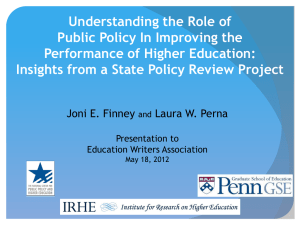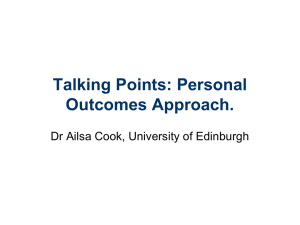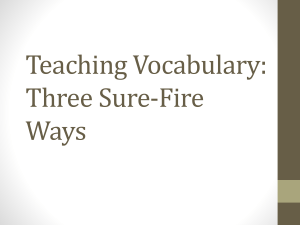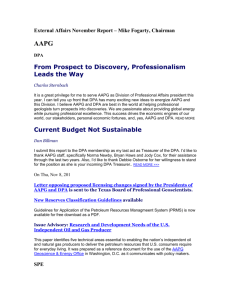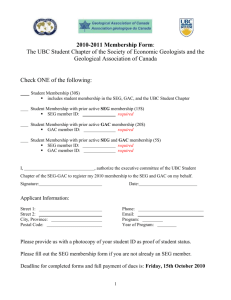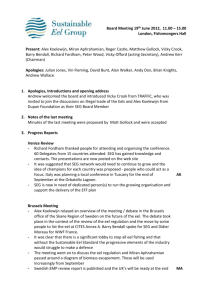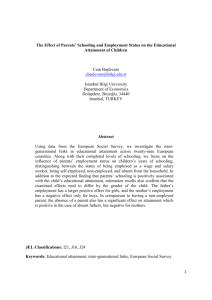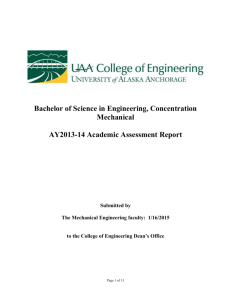Investigating the effect of out of school activities on educational
advertisement
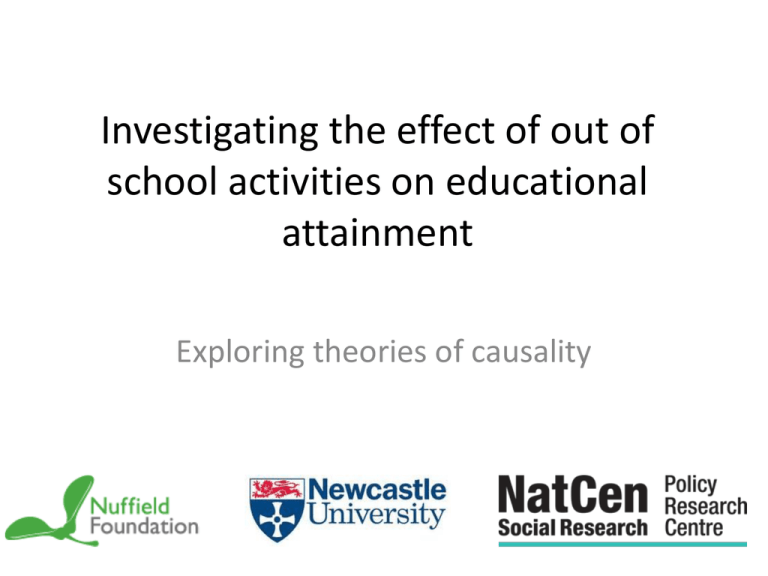
Investigating the effect of out of school activities on educational attainment Exploring theories of causality What links are there between out of school activities and educational attainment? What do we mean by out of school activities “Learning activity outside normal school hours that children take part in voluntarily”. E.g. • Music lessons • Sports clubs • After school clubs • Scouts/Guides etc Hypothesis Participation in Out of School Activities Improved educational attainment Processes We are suggesting that children who take part in out of school activities do better educationally, and want to explore the processes underlying this link We will analyse data to find • How children spend their time out of school range and types • Change and continuity during primary school • Patterns of activity participation for children from different backgrounds (incl parent employment, SEG) • Associations between different activities and educational attainment at 11 We will then • Interview parents • Interview out of school activity providers • Interview children • We’d like you your help to explore reasons for links Theories of underlying processes • From our review of the literature we have drawn out possible theories of causation • We want to test which theory is most likely to underpin this link • There are a wide range so we have grouped the theories by – Child-focussed – Social focussed – Activity focussed • These are presented on the following slides • We welcome your opinions on them Selection effects • More engaged families send children to out of school activities. Also more engaged in academic achievement • Higher SEG parents can afford out of school activities. Higher SEG children achieve better at school Child focussed Identification/Commitment Model (Marsh & Kleitman; Valentine et al; Cummings et al) Activities take place in school Pupil enjoys activities Increased engagement with school Pupil identifies with school more. Staff have better impression of pupils, reflected in school Socio-cultural Model (Vygotsky; Bruner) Capabilities are nurtured in a less formal setting Transferred to formal learning Self belief model (Valentine, 2002) Attainment in non-educatiom setting Increased confidence Goal theory (Elliott) Activities encourage desire to demonstrate skills and ability Social focussed Social Capital theory (Putnam) Activities increase social resources Social cognitive learning Exposure to admired peers (Bandura) Allows observation and imitation of traits Risk & Resilience theory (Camsey; Ungar; Martin & Marsh; Garmezy) Exposure to risk and resilience Develops protective factors (confidence, control, commitment) Adult Supporters (Eccles et al) Attachment to non-familial adults See instructors in a supportive role Activity focussed Academic Model (Fredricks & Eccles; Sylva et al) Increase in skills, learning and participation Capability Approach Success is experienced in non-academic domain Boosts self-belief and confidence Breadth of participation (Valentine et al; Buoye) Activities have educational content Increased learning Normalises learning with peers Competition Competitive element (Broh) Increases desire to succeed Any others? Happy children who have fun are more receptive to learning and achieving? Children who succeed at school are more likely to take place in out of school activities? Parents who send their children to out of school activities are those who engage more with their children’s lives / place more emphasis on success? Keep in touch • We’ll be releasing our findings throughout the project • Let us know your thoughts or get added to our mailing list Emily.tanner@natcen.ac.uk
